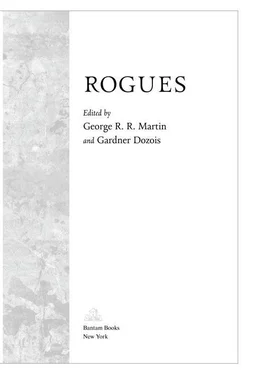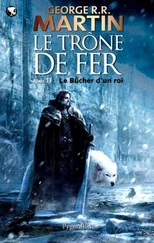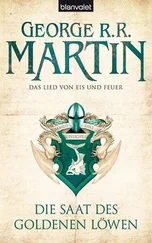Fulferin looked back with an expression that said he did not invite the curiosity of strangers. Raffalon ignored the implied rebuff, and said, “Your god made an arrangement with me. Having rescued you, I am sure you will want to help him honor it.”
The worldly eyes narrowed. “What arrangement?”
“He is a god of luck in small things. He said that, if I aided you, he would henceforward bless me with his intervention. I believe his influence has already served me, and it will grow even stronger once you have revived his powers.”
Fulferin shrugged. The matter clearly did not engage his interest.
Erminia said, “What is this god talk?”
Fulferin seemed disinclined to answer. Raffalon succinctly described the series of events that had brought them all together. He saw no profit in disclosing the god’s willingness to sacrifice her.
The woman leaned forward, her heavy brows downdrawn. “What is this rite that will restore the god’s strength? And what, by the way, is his name?”
Raffalon realized that the question had not come up and turned to Fulferin, his face forming an interrogative. Again, the god’s man showed no inclination to continue the conversation, but when pressed, he said, “Gods who do not hear their names from worshippers gradually forget them. It is akin to falling into a deep sleep, from which it is difficult for them to wake.”
“So the rite will wake him up?”
The god’s man shrugged. “I am no expert.”
When the thief questioned him further, he displayed annoyance and made gestures that said the inquisition was an affront.
“Why this reluctance?” Erminia said. “Are you not this god’s devotee, dedicated to restoring his powers? Speak!”
But Fulferin did not. Instead, with a gesture of irritation, he rose from the table, taking his satchel and its precious contents with him, and went up the small flight of stairs that ended in a door that opened onto the flat roof.
Raffalon watched him go and was prey to dark thoughts. Fulferin was not the man the god thought he was. He remembered how careful the fellow had been not to touch the idol, which would have given the deity access to his innermost thoughts.
The thief made a thoughtful sound in the back of his throat. His gaze slid sideways toward Erminia. The woman, sitting with her chin in her hands and her elbows on the table, had also watched Fulferin depart. Now she threw a look Raffalon’s way, tilting her head and moving her mouth in a way that said she knew something.
“What?” he said. “What do you know?”
But now her face said she was keeping the information to herself.
Raffalon grunted. “Next time I rescue people from the Vandaayo’s cauldron, I mean to be more choosy.”
That won him a short laugh from Erminia, but the sound lacked humor. She took a final apple and went to sit in one of the open windows, where she could keep an eye on one of the approaches to the estate. Raffalon took the embrasure opposite. As the day wore on, one or the other would come back to the table for a swallow of wine or a piece of fruit, but otherwise they kept their separate vigils.
At nightfall, Fulferin came down from the roof. They did not seek to light a fire, the windows being unblockable. Raffalon said he would take the first watch. Erminia said she would take the second. Fulferin shrugged and lay on the floor, his satchel for a pillow.
After three hours without incident, Raffalon woke the woman—carefully, because she slept with her knife to hand—and disposed himself to sleep. Fulferin snored loudly in a corner, but it had been a long day following a short night’s sleep in a tree, and that in a tree. The thief soon fell into oblivion.
He awoke in the full light of morning to find Erminia shaking him. “Get up!” she said. “The bastard has betrayed us!”
He sprang to his feet and followed her to a window. The sun was a good handsbreadth above the forest canopy. Below, in a leaf-strewn, flagstoned courtyard, a fire smoldered, sending a tall column of gray smoke into the still air. Of Fulferin, there was no sign.
“The Vandaayo will have seen the smoke,” said the woman. “We have to get out of here!”
Raffalon was already moving toward the staircase. He picked up his wallet along the way, then went leaping down the stairs, Erminia close on his heels. At the ground floor, he found the stout door open, its lock crammed with mud.
Outside, the thief hopefully kicked aside the smoldering fire, then went to an ornately perforated garden wall and peered through one of the openings. Across the lake he could see motion in the tree line. In a moment, it had resolved into the shapes of Vandaayo. They plunged into the water, trusting in the amphibian strands of their ancestry to sustain them. It would not take them long to cross the distance.
“Run!” he said.
“If we’re lucky,” he said to the woman as they pounded along a trail that he thought would lead back to the road to Port Thayes, “Fulferin went this way, and we’ll catch up to him.”
“And then?” she said, panting as she strove to keep up.
“Between the two of us, we overpower him and leave him to do for us what he intended us to do for him.”
“Leave him for the Vandaayo? Agreed.”
The trail was hard-packed and showed no tracks. But Raffalon caught sight of an overturned pebble, its reversed side darker than the others around it. A little while farther on, he spied a thread snagged on a thorn. The influence of the god of small luck was still with him.
They came to a wider stream, crossed by stepping-stones. As they slowed to navigate their passage, Erminia said, “I know something about Fulferin that he does not know I know.”
“What?” said the thief. “And how?”
“He has come through Fosseth and stopped at our inn.”
“He didn’t recognize you.”
“I am mostly consigned to the kitchen, scrubbing pots and scraping plates while my sister, Elfrey—she of the blond hair and balloonish breasts and pneumatic hips that draw all eyes—she waits on the customers. Father reckons it good for business.”
Raffalon extended a hand to help across a wide gap where the current ran strong between the stones. “What do you know of Fulferin?”
“He is no more than a hedge sorcerer, if that.” She leapt over, daintily. “I doubt he knows more than a handful of minor spells, but he is in service to Bolbek, who calls himself the Potence, a powerful thaumaturge in Port Thayes.”
“Why does Bolbek send him through Fosseth?”
“It is on the old road to the ruins of Itharios.”
The man knew of the place, a tumble of broken walls and upheaved pavements, devastated in an earthquake millennia ago. “So?” he said.
“Fulferin delves in the old fanes, seeking out effigies of foregone gods. These he delivers to his master. Though sometimes they dig together.”
“To restore their powers?”
They had crossed over now. She shook her head. “It involves powers, to be sure, but from what I heard them whispering when once they both stopped at the Gray Bird, the thaumaturge uses the gods the way a spider uses a fly.”
“Ah,” said Raffalon. Having been once incarcerated and treated in ways he had not enjoyed, he had since tended to come down on the side of flies and to reject the claims of spiders. “He has fooled the god,” he said.
“I suppose,” she said, “that even deities are disposed to believe what they want to believe, especially when they are desperate to survive. And when a powerful mage cloaks his assistant’s true nature.”
The man remembered the image of an innocent Fulferin that the god had put up on the screen in his mind. “Hmm,” he said, then, “we had better move on.”
Читать дальше












